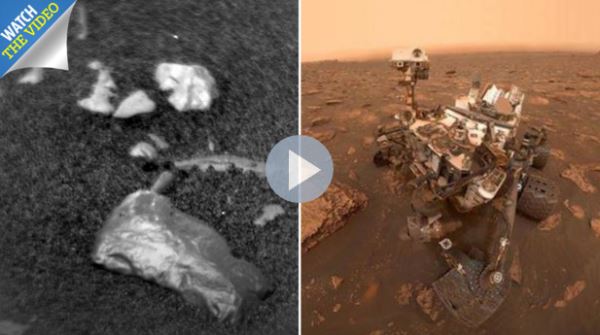SPACE VISITOR Nasa admits ‘tiny super-intelligent’ aliens may have ALREADY visited Earth – and says some UFO sightings ‘cannot be explained or denied’
A top Nasa scientist said the space agency needs to be "more aggressive" in the hunt for alien life
REVEALED By Sean Keach, Digital Technology and Science Editor
3rd December 2018, 11:52 am | Updated: 4th December 2018, 7:31 am
A NASA scientist admits that it's entirely possible aliens have already visited Earth – and we simply never noticed.
The space expert also noted that not all UFO sightings can be "explained or denied", and said scientists should be more open-minded about the possibility of alien visitors.
GETTY - CONTRIBUTOR
A top scientist admits that aliens may have visited Earth, but said they could look completely different to how we expectNasa has long been investing in SETI, the "search for extraterrestrial intelligence" – better known as aliens.
And in a recently publisher paper on SETI, Professor Silvano P. Colombano suggested that alien life may have already visited us.
He suggested that aliens could look so different from how we expect, and that they may be able to travel huge distances – because we simply can't comprehend their make-up or technology.
"I simply want to point out the fact that the intelligence we might find and that might choose to find us (if it hasn’t already) might not be at all be produced by carbon based organisms like us," said Professor Colombano, of Nasa's Ames Research Centre in California.

Nasa’s Mars curiosity rover finds shiny ‘golden’ rock on red planet
GETTY - CONTRIBUTOR
Nasa's Professor Colombano also suggested that some UFO sightings "cannot be explained or denied"
"How might that change the above assumptions about interstellar travel? Our typical life-spans would no longer be a limitation (although even these could be dealt with multi-generational missions or suspended animation), and the size of the 'explorer' might be that of an extremely tiny super-intelligent entity."
According to Professor Colombano, scientists are too preoccupied with modern human technology.
This, he says, makes it difficult for us to imagine technology that could have been produced by aliens living on planets older than Earth.
He said "we need to re-visit even our most cherished assumptions", including that "interstellar travel is impossible or highly unlikely".
"Considering further that technological development in our civilisation started only about 10,000 years ago and has seen the rise of scientific methodologies only in the past 500 years, we can surmise that we might have a real problem in predicting technological evolution even for the next thousand years, let alone 6million times that amount," the professor explained.
He added: "Even if the speed of light continues to be an unbreakable barrier, over spans of thousands of years civilisations could probably make interstellar journeys."
NASA’s first spacecraft InSight designed to delve deep into a distant world is on course to land on Mars after six-month voyage
In his paper, titled New Assumptions to Guide SETI Research, Professor Colombano said that recent discoveries of Earth-like planets by the Kepler space telescope offered hope.
He said this should prompt Nasa to "focus our attention on detecting signs of life and technology in specific planetary systems".
"I feel we need to become more flexible in our assumptions," he explained.
"The reason is that, while it is still reasonable and conservative to assume that life is most likely to have originated in conditions similar to ours, the vast time differences in potential evolutions render the likelihood of 'matching' technologies very slim."
(THE SUN)